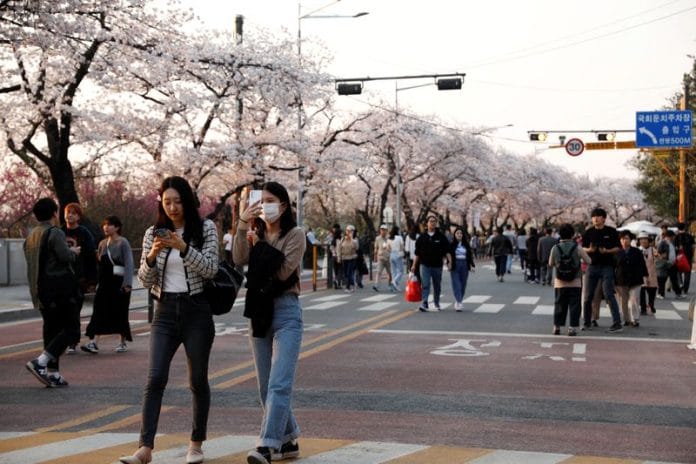Seoul: South Koreans became a year or two younger on Wednesday as new laws that require using only the international method of counting age took effect, replacing the country’s traditional method.
Under the age system most commonly used in South Koreans’ everyday life, people are deemed to be a year old at birth and a year is added every Jan. 1.
The country has since the early 1960s used the international norm of calculating from zero at birth and adding a year on every birthday for medical and legal documents. But many South Koreans continued to use the traditional method for everything else.
In December, South Korea passed laws to scrap the traditional method and fully adopt the international standard.
“We expect legal disputes, complaints and social confusion that have been caused over how to calculate ages will be greatly reduced,” Minister of Government Legislation Lee Wan-kyu told a briefing on Monday.
According to a government survey conducted in September 2022, 86% of South Koreans said they would use the international age in their everyday life when the new laws took effect.
“I was about to turn 30 next year (under the traditional Korean age system) but now I have some more time earned and I love it,” Choi Hyun-ji, a 27-year-old office worker in Seoul, said.
“It’s just great to feel like getting younger,” Choi added.
Another age system exists in South Korea for conscription, school entrance and calculating the legal age to drink alcohol and smoke: a person’s age is calculated from zero at birth and a year is added on Jan. 1. Officials said that method would remain for the time being.
(Reporting by Soo-hyang Choi, Minwoo Park and Daewoung Kim; Editing by Gerry Doyle)
Disclaimer: This report is auto generated from the Reuters news service. ThePrint holds no responsibilty for its content.






